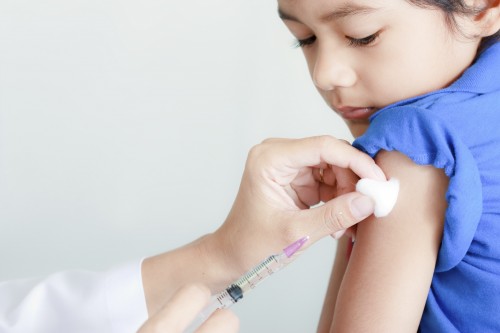The return of measles
CDC reports highest measles outbreak since 1996
 The Centers for Disease Control and Prevention (CDC) has reported 129 cases of measles, the highest number in the United States since 1996. The CDC states that from Jan. 1-April 18, 2014 a total of 129 cases of measles were recorded in this country.
The Centers for Disease Control and Prevention (CDC) has reported 129 cases of measles, the highest number in the United States since 1996. The CDC states that from Jan. 1-April 18, 2014 a total of 129 cases of measles were recorded in this country.
Donald Murphey, M.D., medical director of Infectious Disease at Cook Children’s, worries over the fact that diseases like measles and pertussis are once again in the news.
“It’s alarming to see the rise in these diseases that were so common prior to the advent of effective vaccines, but largely disappeared with immunization,” Dr. Murphey said. “It’s frustrating too because we have safe vaccines that prevent these diseases. The solution is for kids, teens, and adults to get immunized.”
Measles is a highly, dangerous, but preventable disease with vaccinations.
The CDC report says that many of the cases are from people who visited other countries. Of the 129 cases reported by the CDC, 34 were “importations” from other countries. The Philippines has seen 20,000 confirmed or suspected cases of measles cases from Jan. 1 to Feb. 28 and 69 confirmed deaths.
But why is this happening? “The increase in importations from this outbreak and subsequent transmission in certain settings in the United States highlights the importance of ensuring age-appropriate vaccination for persons traveling to areas where measles is endemic and maintaining high vaccination coverage at the national and local level,” The CDC report states.
Parents can make an important step in preventing their children from catching measles through the use of two doses of the MMR vaccine.
“We thought we were on our way to eradicating these diseases,” Dr. Murphey said. “Our goal was that these diseases would be completely controlled by the year 2015. But misinformation and fear about immunization has prevented that from happening. It’s a very sad situation because children suffer, but it can be much worse if segments of the population refuse to receive their vaccines.
Measles is particularly contagious. Transmission is by coughing, sneezing or simply being next to someone laughing. It’s that easy.
Dr. Murphey said what’s particularly frustrating is that these diseases can be contained and even eliminated if we do our part. MMR vaccination remains the most effective way to prevent outbreaks. In children, the first MMR vaccine dose is usually administered at 12-15 months and the second at 4-6 years. However, the MMR vaccine is recommended for children as young as 6 months old when they are traveling abroad. Children under 12 months of age and traveling internationally should receive 2 doses of MMR, separated by at least 28 days
All college students, international travelers, and health care personnel should receive two doses of MMR vaccine, unless they have other evidence of measles immunity.
“I can’t stress enough if you are traveling abroad, the importance of making sure you are updated on your immunization,” Dr. Murphey said. “This holds true for pregnant women, infants, kids, teens and adults. We all have to do our part and have our shots updated to keep each other healthy.”
